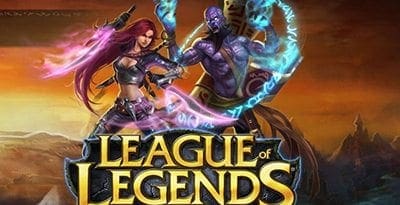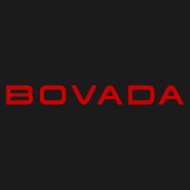The post DetonatioN sign V3 Vega’s former Apex Legends squad appeared first on Esport Bet.
]]>Those players, having secured a spot at the Split 2 playoffs in Stockholm and making it to the grand finals, will now represent their new team at the July Apex Legends?Global Series (ALGS)?Championship. Having?finished in 20th place at the Stockholm LAN and fourth in the APAC North Split 1 playoffs, the team qualified for the last tournament of the ALGS season.
It must be noted that the move is a step up for the?former V3 squad. DetonatioN’s League of Legends squad, DetonatioN FocusMe, has amassed a large audience in recent years, establishing the organization’s reputation. Over the past four years, the team has won many LoL Japan League (LJL)?championships and earned the privilege of representing Japan at numerous LoL World Championships.
Today, the company is expanding into Apex, which has a substantial number of?supporters in Japan. The new DetonatioN squad will aim to do well at the ALGS Championship to get their new company off to a strong start.
Considering the team’s unsatisfactory 20th-place performance in the Stockholm finals, DetonatioN performed admirably to qualify regardless?for those finals, given the strength of several teams that did not make it. North American heavyweights such as G2 and powerful EMEA teams such as ex-Gambit team Players, iG International, Acend, SCARZ, and K1CK, among others, were eliminated from the competition early.
Given their LAN experience, DetonatioN will want to demonstrate in Raleigh they are capable of doing more than qualifying for the finals. The team will fight other teams from around the world for a share of US $2 million in prize money and the title of ALGS champions.
The ALGS Tournament will begin on July 7.
The post DetonatioN sign V3 Vega’s former Apex Legends squad appeared first on Esport Bet.
]]>The post Rocket League and Street Fighter V to feature at Intel World Open appeared first on Esport Bet.
]]>The event is said to feature Street Fighter V and Rocket League tournaments with nation-based teams, with each event offering a US $250,000 prize pool.
Any player who wishes to represent their country at the Tokyo Olympics needs to qualify via open qualifiers, which are set to begin in early 2020.
Once the national squads are assembled, each of the teams will then have to compete for their spot at the World Open qualifying event in Katowice, Poland, in June 2020.
Out of all participating teams, only seven will earn a ticket to join Japan at the main event, set to kick off on July 22 at Zepp DiverCity.
The qualifying process, dates and venue will be the same for both Street Fighter V and Rocket League tournaments.
The two tournaments are set to run for two days and conclude on July 24, which is the same day as the opening ceremony of the Summer Olympics.
The World Open further builds on the collaboration between Intel and the IOC for the IEM PyeongChang esports event that took place ahead of the 2018 Winter Olympics in South Korea.
“As we explore the engagement between esports and the Olympic Movement we are looking forward to learning from this event and continuing to engage with the passionate esports community from around the world,” said Kit McConnell, IOC sports director.
Mark Subotnick, the leader of Intel’s esports efforts, also revealed why Intel chose Rocket League and Street Fighter as the two games featured in the World Open tournament.
“These two titles are something that the average consumer or audience member can look at and get what’s going on, and that’s unfortunately not always the case in esports,” he said.
“So that makes a lot of sense to work with these two partners.”
While esports events are not yet part of the Olympic Games, there is a possibility they could enter the fold after Paris 2024.
The post Rocket League and Street Fighter V to feature at Intel World Open appeared first on Esport Bet.
]]>The post Capcom announces Japan plans to expand esports grip appeared first on Esport Bet.
]]>Capcom is already prominent in the esports scene in North America, largely through its popular series Street Fighter, but the proposed push into home country Japan where the game is hugely popular shows a desire to further gain a slice of the growing industry.
JESU aims to solidify the different eSports bodies in Japan and help give the industry a voice, with insiders believing a unified approach to government officials is the best chance of properly regulating the industry.
And Capcom entering the fray shows they might be on the right track. The games developer has announced it will hold esports competitions based around Street Fighter in Japan.
Esports was estimated to be worth $500 million in 2017, and growing rapidly in 2018, with many pundits predicting it could be bigger than traditional sports in time.
The growing footprint of esports is highlighted by its inclusion in the 2022 Asian Games in Hangzhou, China; while the Organising Committee for the Paris 2024 Olympic and Paralympic Games is talking about on the possibility of adding esports as an event.
Last week Capcom established the a communications base at its Plaza Capcom arcade in Kichijoji, with further plans to expand nationally to its other arcades and hold qualifying tournaments for pro license certification.
Running alongside the Capcom Pro Tour, which is run by its USA arm, Capcom will run an event named the Capcom Pro Tour Japan Premier Tournament at the Tokyo Game Show.
The post Capcom announces Japan plans to expand esports grip appeared first on Esport Bet.
]]>The post Top Japanese esport organizations merge into Japan Esports Union appeared first on Esport Bet.
]]>The JSEU is comprised of the eSports Promotion Organization, Japan e-Sports Association and the Japan eSports Federation. Each company operated independently for years until the Computer Entertainment Supplier’s Association (CESA) aided their consolidation. The CESA is the main promoter of the Japanese video gaming industry as a whole and runs the Tokyo Game Show convention, one of the biggest annual gaming events on the calendar.
With all three groups now aligned in goals, they will combine their resources to promote the growth of the competitive esports circuit in the country.
“The global audience for esports is set to reach 300 million people by 2019, and 500 million by 2020. That is no different from real-life sports. Esports is mainly popular in Asia and in the U.S., and there is also hope in Japan to popularize esports. We will look to promote the industry and raise esports’ social status in Japan,” said JESU Representative Director Hideki Okamura in an official press release.
Japan has struggled to create a prospering esports scene even in recent years, despite being the third-highest country world-wide in video game revenues, with more than 65 million gamers spending a total of $12.5 billion in 2018 alone. The many reasons are complex, but they all boil down to current gaming laws in the country.
National laws currently prevent prize money from being pooled together using proceeds made from ticket sales, which is one of the most common practices international gaming publishers and third-party esports organizers use to ensure larger-than-life prize-pools.
The Act against Unjustifiable Premiums and Misleading Representations presently caps prizes at 100,000 yen (around US$890) for any competition that promotes or sells a product. Because esports tournaments are large-scale competitions for video games and often sponsored and advertised by the developers themselves, esports unfortunately comes under this umbrella.
As a result of their heavy anti-gambling stance and existing legislation, Japan’s best pro gaming talent has lacked a platform to thrive and make a living. Many have either joined international teams or stuck to amateur events as a result.
However, with the JSEU now in place, there will hopefully be a new way to circumvent the current laws and enable larger prize-pools for tournaments in the country.
The JSEU isn’t the first push for a renewed esports industry in Japan. Late last year, the Japanese government via JeSPA announced its intent to issue pro licenses to its most talented esports players in 2018, in the earliest effort to by-pass the current gambling laws lumping esports with pachinko, video poker and other forms of online gambling.
Local game developers like Square Enix have also opened up several “theatre cafes” and other venues for gaming demonstrations, in a stealthy bid to prepare for eventual legislative change.
We can only hope the formation of JSEU leads to a proper esports industry in Japan, given the amount of incredibly talented gamers, particularly in the annual fighting game scene.
The post Top Japanese esport organizations merge into Japan Esports Union appeared first on Esport Bet.
]]>The post Report: Japan will issue pro licenses to esports players in 2018 appeared first on Esport Bet.
]]>Provided by translation from Bloomberg Japan tech reporter Yuji Nakamura, the Japanese government via the Japan Esports Association (JeSPA) will begin granting pro licenses to its most talented competitive gamers in a push to make the country an “e-sports powerhouse” and by-pass complicated gambling laws presently lumping esports with the likes of video poker and other forms of traditional gambling.
The aim, as summarised by Nakamura, is to distinguish gaming “pros” from the general public, which will be defined by the developer of each popular esport title rather than a community-granted or self-styled status.

The original document, which you can read untranslated here, lists several popular esports titles to receive licenses first, including Street Fighter V Arcade Edition, Tekken 7, Winning Eleven 2018, Puzzle & Dragon and Monster Strike.
The pro licenses will provide a way around the present-day legal wording, but local laws which prevent prize money from being pooled together using proceeds made from ticket sales, a common money-raising practice that international game developers and other tournament organizers use to great effect, will still need addressing.
Japan’s esports growth has been stunted by such heavy gambling restrictions, which has prevented star talent from emerging because making a living from competitive gaming is extremely difficult compared to in other countries.
Millions of Japanese citizens used to watch nationally televised video-game tournaments in the 1980s and 1990s hosted by big-name gaming companies like Konami, but players were never paid or awarded prize money.
In the meantime, several game developers such as Square Enix are quietly preparing for an imminent legislative push, opening up theatre cafes for gaming demonstrations. We can only hope Japan’s new measures can allow the country to enter the world stage soon, given next year the industry is predicted to be worth a whopping $1.6 billion.
The post Report: Japan will issue pro licenses to esports players in 2018 appeared first on Esport Bet.
]]>The post Riot announces LoL 2017 international eSports events and regions appeared first on Esport Bet.
]]>
League of Legends is set for a bumper start to 2017, with Riot announcing plans for the upcoming League Of Legends Mid-Season Invitational, as well as the highly anticipated LoL World Championship.
The Mid-Season Invitational will head to Brazil, kicking things off from April 28 and running until May 21. The structure will be different compared to past seasons, however.
The 2016 Mid-Season Invitational feature six teams and an International Wild Card, with champions from Korea, China, North America and Europe battling it out.
In 2017, Riot will get rid of the Wild Card system, and will instead turn to smaller leagues to fill the spot.
That means a roster of thirteen teams will battle at the Mid-Season Invitational.
There will also be a brand new tournament structure, with a six-team group stage complimented by a new play-in stage, which will determine each team’s seed.
Teams from last year’s three best-performing regions have already been granted a place in the group stages. Other regions will need to find for a place.
Here are the regions that will — alongside the five major leagues already intended to attend — be represented:
- Japan (JPN)
- Brazil (BR)
- Commonwealth of Independent States (CIS)
- Latin America – North (LAN)
- Latin America – South (LAS)
- Oceania (OCE)
- Southeast Asia (SEA)
- Turkey (TUR)
World Championship
China will be host of the World Championship for the first time ever.
Kicking off from September 23 and running until November 4, it’s getting a slight restructuring with 24 teams competing, up from 16 in past years.
There will be a knock-out play-in stage, which will determine group staging. Each representative from the regions will battle against third-seeeded teams from each region. Four teams from this group will then proceed to the group stage.
The 2017 League of Legends World Championship in China will run from September 23 until November 4.
The post Riot announces LoL 2017 international eSports events and regions appeared first on Esport Bet.
]]>
